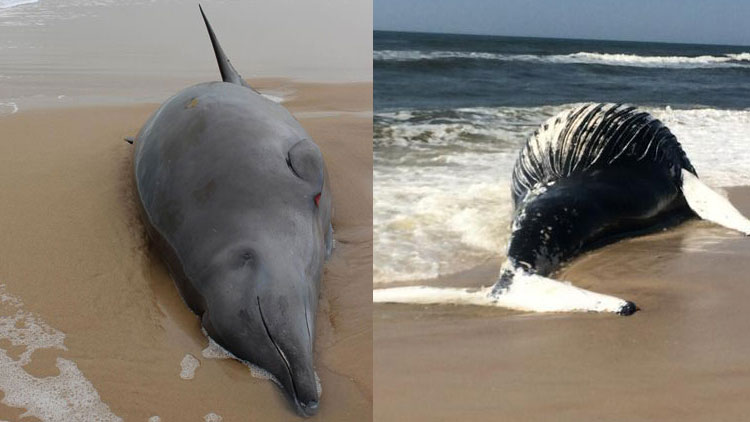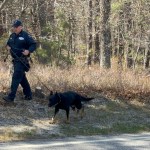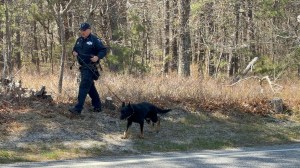The True’s beaked whale that washed up in Westhampton Beach last week was an emaciated eight-foot-long female calf that died of starvation, according to The Riverhead Foundation for Marine Research and Preservation.
Marine biologists who performed a necropsy Thursday on the emaciated whale that found it had no food in its stomach and had died days before being found Tuesday, a spokeswoman for the group said.
“It is believed this whale was still dependent on its mother, and would still have been nursing at this stage,” the group said in a news release, which noted that the whale’s carcass had been scavenged on by animals on the beach.
The whale was found the day after a 28-foot-long juvenile humpback whale washed up on Fire Island. The foundation determined that the humpback died of injuries consistent with being struck by a ship.
As far as the True’s beaked whale, the foundation noted that little is known about them since they’re rarely observed by humans because they inhabit deep ocean waters far from shore.
They can grow up to 17-feet long and weigh 3,000 pounds, according to the National Oceanic and Atmospheric Administration (NOAA).Their name is derived from Frederick W. True, a curator at the Smithsonian Institution, who described the species in 2002 after one was found stranded on a North Carolina beach, according to the NOAA.
Although it’s rare that one of these type of whales washes ashore, an adult 15-foot-long female True’s beaked whale was found on a Long Island beach a day before one of her nearly 9-foot-long calfs also washed ashore last year, the Riverhead foundation said.
The lactating mother had ulcers in her stomach, a heavy burden of parasites and was thin, the group said. Although initially stranded alive, she was pushed back into the water by people on the beach before she re-stranded herself and died while the team was in transit.
The group wants to remind the public that it is a violation of federal law to interact with federally protected animals like these mammals. Anyone who finds marine wildlife on the beach should call the foundation’s stranding hotline: 631-369-9829.



























